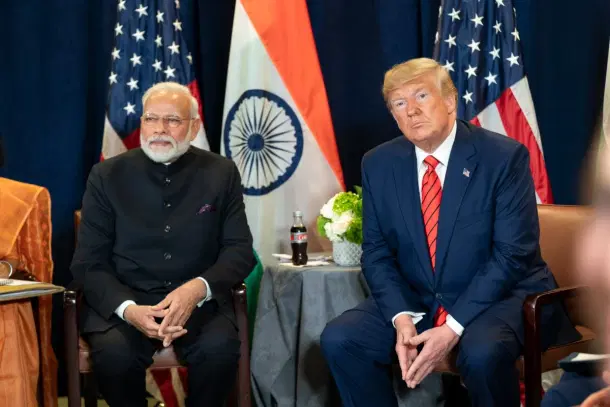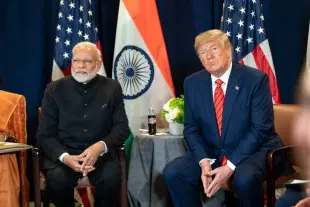News Brief
Trump's Last-Minute Change Of Mind? What's Delaying India-US Trade Deal While EU Secures 15 Per Cent Tariff Rate
Nishtha Anushree
Jul 29, 2025, 10:32 AM | Updated 10:32 AM IST
Save & read from anywhere!
Bookmark stories for easy access on any device or the Swarajya app.


India appears to have encountered a significant obstacle in its trade deal discussions with the United States (US), because of a reportedly last-minute change of mind of US President Donald Trump.
Both parties had settled on a mutual agreement in February to work towards an early harvest agreement by September, as announced by Finance Minister Nirmala Sitharaman earlier.
However, it seems that Trump revised his opinion upon receiving the proposed early harvest agreement. The White House now believes that Phase 1 should be entirely finished before signing any agreement.
The trade deal includes a specific arrangement related to Trump, which is complicating matters as it would encompass nearly 40 per cent of tariff lines. This was intended to be a firm commitment during a scheduled visit by Trump to India around the same period.
The initial harvest was set to precede the expansion of negotiations to additional tariff lines, aiming to encompass 90 per cent of tariff lines, thereby concluding Phase 1 of the trade agreement.
The subsequent phase was intended to involve more intricate and prolonged discussions on standard alignment and the adoption of mutually agreed upon quality control measures.
The White House altered the plan at the last minute regarding India. Attempts are being made to persuade Trump to rethink his decision. However, at present, negotiators are returning to the negotiation table to resume discussions and, if necessary, completely restructure the agreement.
The discussions scheduled for the following month are likely to represent the 50th instance of negotiations with the US, marking it as the most extended trade negotiation the Trump administration has ever conducted with any nation or coalition.
Notably, India was one of the first to start trade discussions with the Trump administration. However, a deal still remains out of reach for both parties, even as others seem to be making faster progress. This includes the EU, which managed to secure a deal with the US involving a 15 per cent tariff rate on Monday (28 July).
A significant reason for this is India's role. The relatively elevated tariff structure only adds complexity to the negotiation process. However, New Delhi has made a daring proposal this time, considering its past performance. Nevertheless, it will not meet Trump's tariff deadline of 1 August.
Nishtha Anushree is Senior Sub-editor at Swarajya. She tweets at @nishthaanushree.





